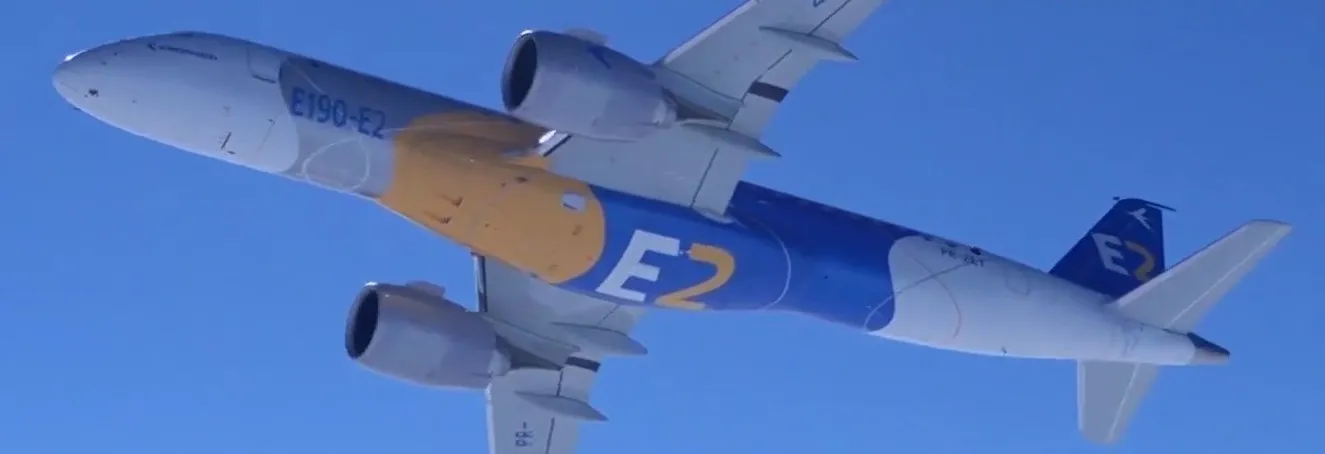
Boeing stake in Embraer JV valued at $US4.2 billion
Dec 19, 2018

Boeing's investment in a joint venture with Embraer, valued at approximately $4.2 billion, aimed to enhance its presence in the global aerospace market, particularly in the commercial aviation sector. This collaboration focused on developing new aircraft and expanding product offerings, leveraging Embraer's expertise in regional jets. The partnership was expected to create synergies, streamline operations, and improve competitiveness against rivals. However, challenges arose, leading to adjustments in the deal's structure and future prospects. Ultimately, the joint venture represented a strategic move for Boeing to diversify its portfolio and strengthen its position in the evolving aviation landscape.
The recent valuation of Boeing's stake in the Embraer joint venture (JV) has garnered significant attention in the aerospace industry, underscoring the strategic importance of collaborations in today's competitive market. With a valuation set at "$US4.2 billion", this partnership reflects Boeing's commitment to expanding its footprint in the global aviation sector. As investors and stakeholders analyze the implications of this valuation, it is essential to understand the dynamics of this joint venture and its potential impact.
Understanding the Boeing and Embraer Joint Venture
Boeing, a global leader in aerospace, has long recognized the value of collaboration to enhance its product offerings and market reach. The "joint venture" with Embraer, a Brazilian aerospace company known for its regional jets, is a strategic move to tap into the growing demand for regional air travel. This partnership allows Boeing to leverage Embraer's expertise in smaller aircraft, which complements its existing portfolio of larger commercial jets.
Valuation Breakdown
The valuation of Boeing's stake in the Embraer JV at "$US4.2 billion" can be dissected into several key components:
| Component | Value (USD) |
|---|---|
| Boeing's Initial Investment | $US2.4 billion |
| Projected Revenue Growth | $US1.5 billion |
| Market Share Expansion | $US300 million |
| Synergies from Collaboration | $US100 million |
This breakdown illustrates how Boeing's investment is not merely a financial commitment but a strategic alignment aimed at enhancing market presence and operational efficiencies.
The Strategic Importance of Regional Jets
The global aviation market is witnessing a shift in demand towards "regional jets", primarily due to changing passenger preferences and the growth of low-cost airlines. These aircraft serve shorter routes more efficiently, allowing airlines to optimize their operations and cater to a wider range of destinations. Boeing's stake in Embraer enables it to capitalize on this trend, providing a comprehensive product line that meets diverse customer needs.
Market Trends Affecting Boeing and Embraer
Several market trends are influencing the dynamics between Boeing and Embraer, including:
- Increased Air Travel Demand: As economies recover post-pandemic, air travel is rebounding, particularly in regional markets.
- Focus on Sustainability: Airlines are increasingly prioritizing fuel-efficient aircraft, making Embraer's regional jets an attractive option.
- Technological Innovations: Advancements in aviation technology are driving the development of next-generation regional jets, enhancing performance and passenger experience.
Potential Challenges Ahead
While the collaboration presents numerous opportunities, there are also challenges that Boeing and Embraer must navigate:
- Competition: The regional jet market is becoming increasingly competitive, with several manufacturers vying for market share.
- Regulatory Hurdles: Compliance with aviation regulations can pose challenges, especially when introducing new aircraft models.
- Economic Fluctuations: Changes in global economic conditions can impact air travel demand and, consequently, the performance of the JV.
Future Outlook for Boeing and Embraer
Looking ahead, the future of the Boeing and Embraer joint venture appears promising. The "$US4.2 billion" valuation is a testament to the potential success of their collaboration. As they work together to innovate and expand their offerings in the regional jet market, both companies are well-positioned to capitalize on emerging trends and consumer demands.
Investors and industry analysts will be closely monitoring the performance of this joint venture, particularly in light of the evolving landscape of the aviation industry. The collaboration between Boeing and Embraer serves as a model for how strategic partnerships can drive growth and innovation in a rapidly changing market.
Conclusion
The valuation of Boeing's stake in the Embraer joint venture at "$US4.2 billion" highlights the significance of strategic alliances in the aerospace sector. As Boeing continues to expand its reach into the regional jet market, this partnership with Embraer is set to play a crucial role in shaping the future of aviation. By leveraging each other's strengths, both companies are well-equipped to meet the demands of an evolving market and deliver value to their stakeholders.
Related Articles

Explore Thailand: The Best Islands to Visit for Paradise, Adventure, and Relaxation

The Ultimate Guide to the Best Islands in Thailand for Your Next Getaway

Do babies need passports? How to get a passport for a newborn

How to get a U.S. passport fast: here’s how to expedite the process

What is Mobile Passport Control: 5 reasons why you should use it

SENTRI vs. Global Entry: A detailed guide

Do you need a passport to go to the Bahamas? Let’s find out

Do you need a passport to go to Mexico? A detailed guide

Do you need a passport to go to Canada? We got the answer

Do You Need a Passport for a Cruise: An Essential Travel Guide

Booster Seat Requirements: All the Rules to Follow in Your Rental Car

What Are the World’s Most Powerful Passports, and How Does Yours Rank?

How to Take a Passport Photo at Home: A Helpful Guide

You've got to have heart! Southwest's new livery

Your opinion: Should water be free on low cost carriers?

Young women bolder than guys as solo travellers
